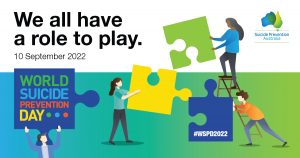Suicide Prevention: Lessons for Counsellors
Article from: Counselling Australia Journal: Volume 23: Number 2 – Winter 2022
By Melissa Marino
Counsellors are critical gatekeepers in the prevention of suicide, says Dr Nicole Hill, a leader in youth suicide prevention research in Australia.
It is, therefore, integral they and other health professionals receive suicide-specific training and operate as part of a healthcare network with families, educators, community organisations and social systems to identify risk and respond in a timely manner.
Dr Hill says her work shows that one in two young people who die by suicide had a suspected or known mental health diagnosis at their time of death. This is important for counsellors to know as it indicates there are opportunities within the health system to make a difference.
The initial response someone receives when reaching out for help can determine how likely they will be to seek future support, she says. With often weeks-long waiting lists for therapy, it is critical that adequate interim support and information is provided to keep people engaged.
“There’s a duty of care to inform young people of strategies or resources they can use to help bridge that waiting period,” she says.
Crisis helplines, such as Lifeline, “can really help during the fleeting suicidal crisis”, she says. And new peer support programs such as one being trialled by SANE Australia could be valuable.
For young people who have disclosed suicide ideation and have a specific plan, best-practice strategies such as means-restriction counselling and safety planning can be very effective. “The research shows that in the general population, safety planning can reduce the risk of suicidal behaviour by up to 50 per cent – so that’s a really important one,” she says.
Culturally informed care is also critical to ensure LGBTIQA+ young people and others who are marginalised have a safe space to go, she says. “It’s as much about addressing the mental health concerns of young people as the social and cultural contexts and stresses that they face.”
Training more counsellors would help address the issue of mental health in young people but, in the long term, changes to the system to ensure young people could access coordinated, ongoing support are required, she said.
As a keynote speaker at the International Association for Suicide Prevention conference, Dr Hill says such events are important for upskilling, exchanging ideas and learning about evidence-based best practice. On a personal level, it is also invaluable to meet others working in the “significantly underfunded” yet critical field, she says.
“The work is hard. We’re dealing with suicide, which is a very difficult topic and has a personal cost. But being able to connect with others who are dealing with the same challenges is really good for our own wellbeing as well.”




